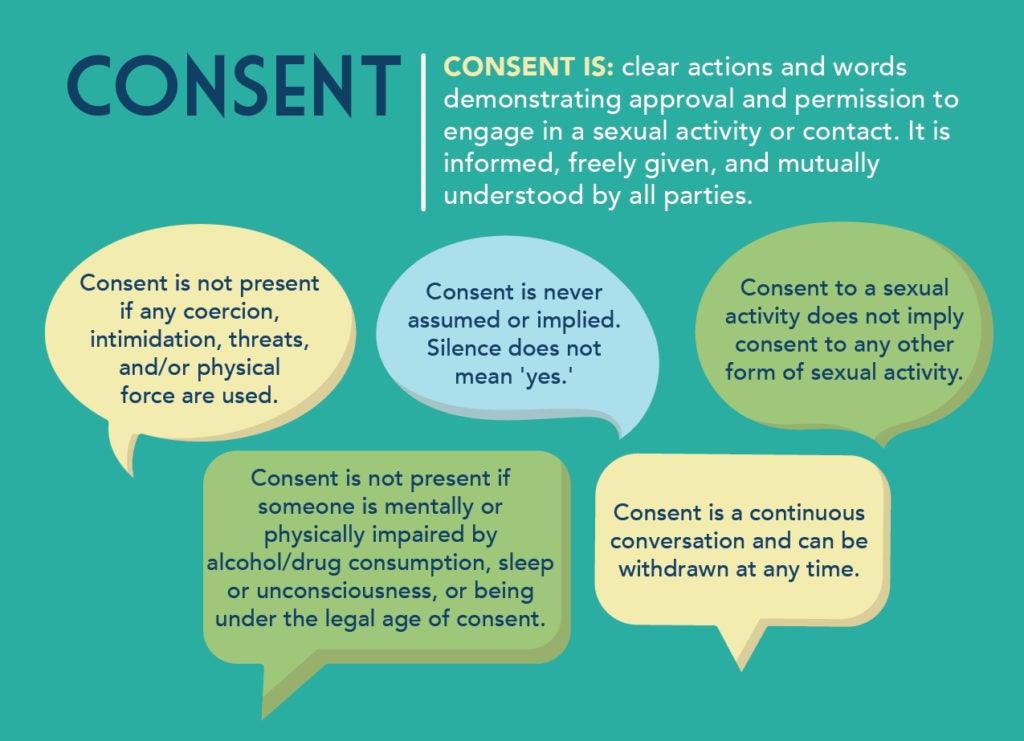Sexual Assault Information & Education
Important Terms & Definitions
- Sexual Assault
Sexual assault refers to any unwanted sexual contact or behavior that occurs without consent. Each state uses a slightly different legal definition to describe sexual assault. Some forms of sexual assault include fondling, unwanted sexual touching, attempted rape, forcing someone to perform sexual acts, or rape.
- Relationship Violence
Relationship violence refers to a pattern of behavior where one partner uses power and/or manipulation in an attempt to control the other person. This abuse can take several forms including emotional, physical, sexual, financial, and/or technological.
- Stalking & Harassment
Stalking and harassment can be defined as engaging in repeated behavior toward a specific person that would cause a reasonable person to fear for their safety or the safety of others, or suffer emotional distress. Stalking and harassment can appear as continued contact even after the individual has been told to stop, unwanted calls/texts, using technology to monitor someone, sending unwanted gifts, driving by home/work locations, and issuing threats to friends and/or family.
- Consent
Consent is explicit approval and permission to engage in sexual activity demonstrated by clear actions, words, or writings; informed, freely given, and mutually understood by all parties involved.
Those who experience sexual assault, relationship violence, stalking, or harassment don’t always know exactly what to call what they’ve experienced, even if they fall under official definitions. Even if you don’t identify an incident as sexual assault, you can reach out to a confidential SARP clinician to talk about it.
For more detailed definitions of sexual misconduct, sexual harassment, sexual assault, sexual acts, sexual contact, relationship violence, and stalking, as well as how these definitions are incorporated into Georgetown’s policies, visit the Sexual Misconduct Definitions page on Georgetown’s Sexual Misconduct website.

